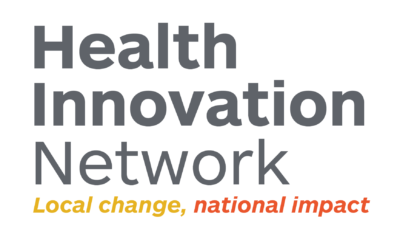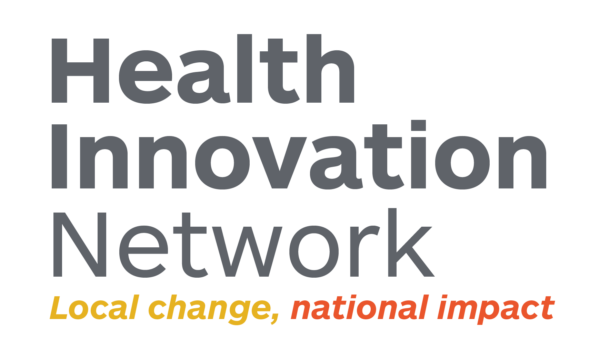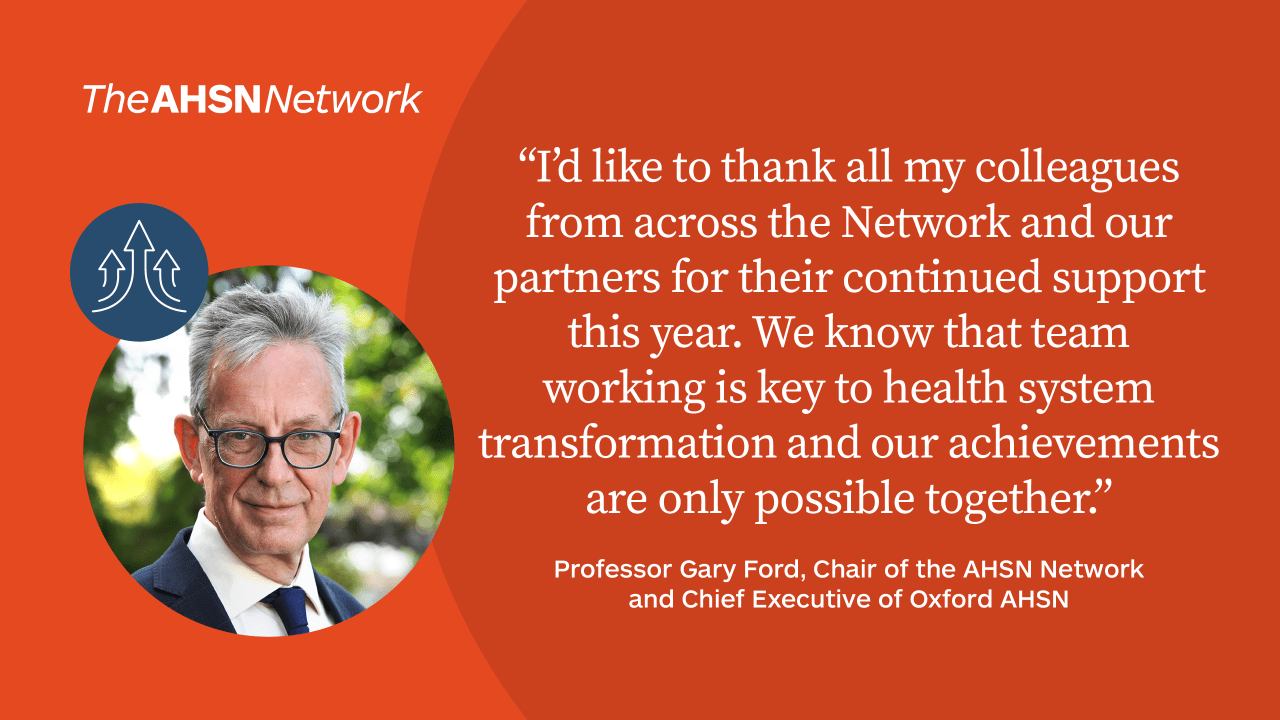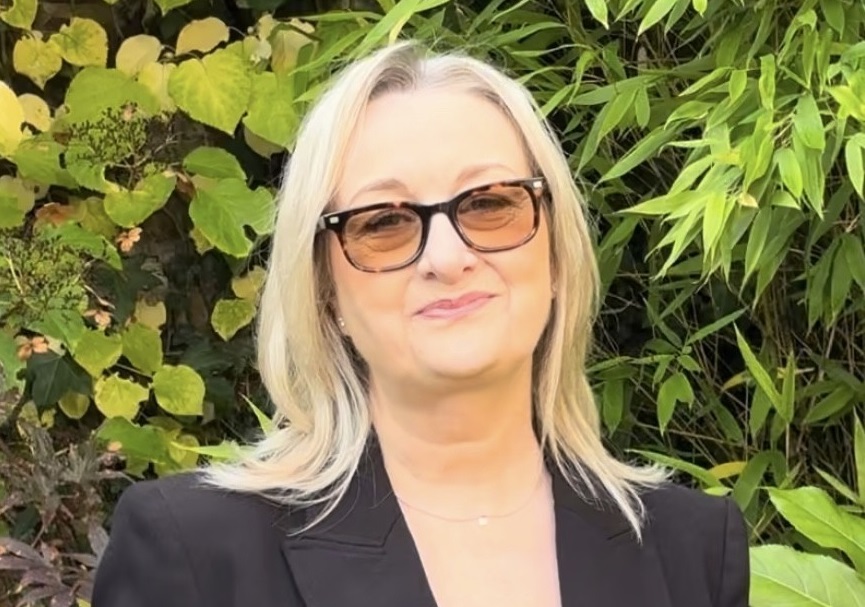2021-22 has been pivotal for the AHSNs and the AHSN Network. While we are still supporting our health and care systems with the recovery from the pandemic, we have undertaken work to set out our vision and strategy and refine our processes to ensure we can meet our collective ambition to transform as many lives as possible through more rapid uptake of high value innovation in health and care.
I summarise our work and priorities over the last year in this overview, you can also read more in our AHSN Network impact report.
Working collaboratively to enhance our collective impact
A focus of our work has included strengthening and further embedding our partnerships with organisations like the National Institute for Healthcare Excellence (NICE), Health Education England (HEE) and NIHR Applied Research Collaboration (ARCs), with joint programmes of work.
We have continued to work closely and collaboratively with our commissioners – NHS England and NHS Improvement, and the Government’s Office for Life Sciences – to co-produce our programmes. We were pleased to welcome colleagues from NHS England and NHS Improvement, and the Accelerated Access Collaborative (AAC) for a series of visits to highlight the achievements of our 15 AHSNs across their geographies and some of the impacts we’ve achieved on a national scale.
More than 480,000 patients benefiting from our national innovation programmes
We have continued with our national programmes and initiatives, including our work to improve ADHD diagnosis for children; increase early intervention for those with eating disorders; enhance the prevention and management of cardiovascular disease; and transform asthma care pathways.
More than 480,000 patients have benefitted through all these programmes of work and other national initiatives.
Through the delivery of the National Patient Safety Improvement Programmes, our Patient Safety Collaboratives have focused on promoting positive safety culture; supporting evidence-based, quality improvement methodology; and encouraging system-level change.
Supporting innovators to grow – leveraging £455m of investment into the economy
Throughout the pandemic, the health and care system saw the impact of life sciences and rapid deployment of innovation on the health of the population. We have undertaken work to refine our ‘universal offer’ for innovators, and are a key development partner in the AAC’s NHS Innovation Service, which will help innovators develop and deploy their innovations to clinicians and patients faster. This year we supported more than 2,400 innovators in their journey to get their innovations adopted by the NHS – helping to leverage £455m of investment into the economy.
Cross-cutting priorities that underpin all our programmes of work
As well as our national innovation and improvement programmes and innovator support, over the last year we’ve also driven forward work on some essential NHS priorities including diversity and inclusion; health inequalities supporting Core20PLUS5; better enabling the adoption of digital and artificial intelligence solutions; and helping to share innovative approaches to help the NHS achieve net zero.
Lastly, I’d like to thank my colleagues from across the Network and our partners for their continued support this year. We know that team working is key to health system transformation and our achievements are only possible together.
Read the full impact report for 2021-22.

Jo Barosa is Account Director at Qbtech UK. Qbtech is a market leading provider of innovative objective tests for assessing and treating ADHD, changing the landscape of ADHD care. Driven by its mission to improve the lives of people with ADHD, Qbtech supports by providing digital and clinical solutions to improve clinical decision making, service [...]

Dr Cheryl Crocker, interim Chief Operating Officer at the Health Innovation Network, explains the vital role innovation plays to not only reduce waiting lists and improve access to care, but to decrease system pressure by improving people’s health and keeping them well for longer. The new Government has rightly declared its focus on moving the [...]

Launched in 2014, SiSU Health is scaling early warning, self-service health kiosks, digital platforms and pathways into pre-existing healthcare services. The British Heart Foundation estimates the annual cardiovascular disease (CVD) related costs to the UK healthcare system are around £10 billion, with annual costs to the UK economy of an estimated £25 billion. Making the [...]

